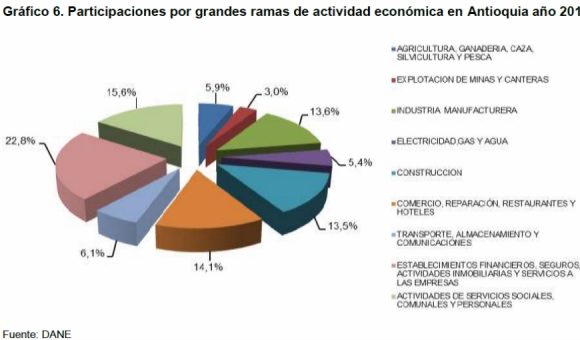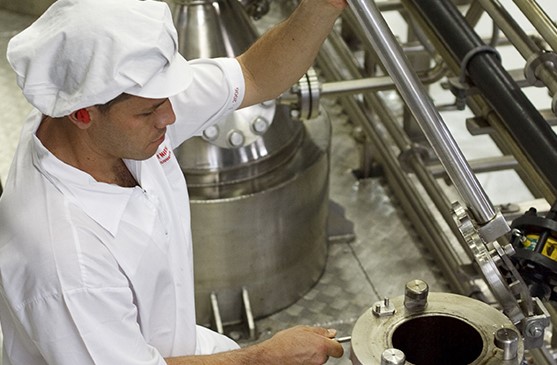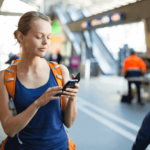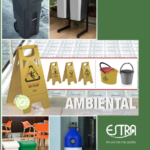Six Domestic ‘Pilot’ Flight Routes from Medellin’s JMC Airport Starting Soon

Colombia’s Ministry of Transport announced August 12 that Medellin’s José María Córdova (JMC) international airport in suburban Rionegro will host six “pilot test” passenger routes — once airlines obtain takeoff/landing “slots” from the Aerocivil regulatory agency.
“After being approved for the pilot plan by the Interior Ministry, the airlines must request from Aerocivil the itineraries and slots to start the commercialization of the flights,” according to Airplan, the operator of JMC airport.
First out of the gate, Medellin-based EasyFly announced August 13 that at JMC it will begin daily flights to/from Bucaramanga and to/from Pereira starting Tuesday, August 18.
The newly approved “pilot” routes will connect JMC to-and-from Palonegro de Lebrija airport (Bucaramanga), Camilo Daza airport (Cúcuta), Matecaña airport (Pereira), La Nubia airport (Manizales), El Edén airport (Armenia) and Gustavo Rojas Pinilla airport (San Andrés island).
However, before any flights can begin, “all the recommendations of the biosafety protocols of the Ministry of Health must be followed,” added Transport Minister Ángela María Orozco.
As an extra precaution, passengers booking flights between these seven cities are supposed to “take an antigen test or [get a] certificate of the other diagnostic or confirmatory alternatives, a maximum of two days prior to the flight.”
This new test requirement is an “additional measure to what is established in the [Health Ministry passenger flight] protocols,” according to an August 11 Interior Ministry order authorizing the new “pilot” flights to-and-from JMC airport.
According to a July 16, 2020 bulletin from the U.S. Food & Drug Administration (FDA), “antigen tests usually provide results diagnosing an active Coronavirus infection faster than molecular tests [PCR tests, the type most used in Colombia and the U.S.], but antigen tests have a higher chance of missing an active infection. If an antigen test shows a negative result indicating that you do not have an active coronavirus infection,[then] your health care provider may order a molecular test to confirm the result.”
As for antibody (serology) tests, such tests “may provide quick results, but should not be used to diagnose an active infection,” according to FDA. “Antibody tests only detect antibodies the immune system develops in response to the virus, not the virus itself. It can take days to several weeks to develop enough antibodies to be detected in a test.”
By contrast, while PCR molecular tests are by far the most reliable for Covid-19 detection, actual reporting of PCR test results typically take several days or even a full week in Colombia (and in most of the U.S.), because PCR test labs here are currently overwhelmed.
Hence a PCR test doesn’t seem a practical option for meeting the new Interior Ministry rule requiring passengers to get a Covid-19 test result within two days prior to a booked flight.
According to the Health Ministry, the other mandatory biosafety protocols for these new flights include:
1. Passengers must arrive a maximum of two hours in advance of the scheduled time of their flight, and with their electronic check-in ready to avoid delays and congestion.
2. Passengers should only carry personal luggage, bags or small backpacks that can be stored under the passenger seat. The rest of the luggage will go into the plane’s baggage compartment.
3. Passengers should have already downloaded the CoronApp-Colombia application onto their cell phones, with all required information filled out.
4. Only passengers and those who work at the airport can enter the terminal.
5. Temperature control will be carried out for all persons entering an airport and upon the arrival of flights.
6. “All people, without exception, passengers and workers who are in an airport must use personal protection elements (face masks).”
7. All airport users, crews and employees are obliged to respect the physical distance of two meters in areas such as counters, scanners and in the lines to board aircraft.
8. Boarding will be authorized only when the aircraft is ready.
9. Inside the aircraft, on-board service will not be provided, and travelers will be asked not to use inflight entertainment systems such as screens, mobile phones, among others. As far as possible, aircraft toilets should not be used.
10. Passengers and crew will wear masks at all times during the flight.
11. Passengers must remain seated during the flight.
















